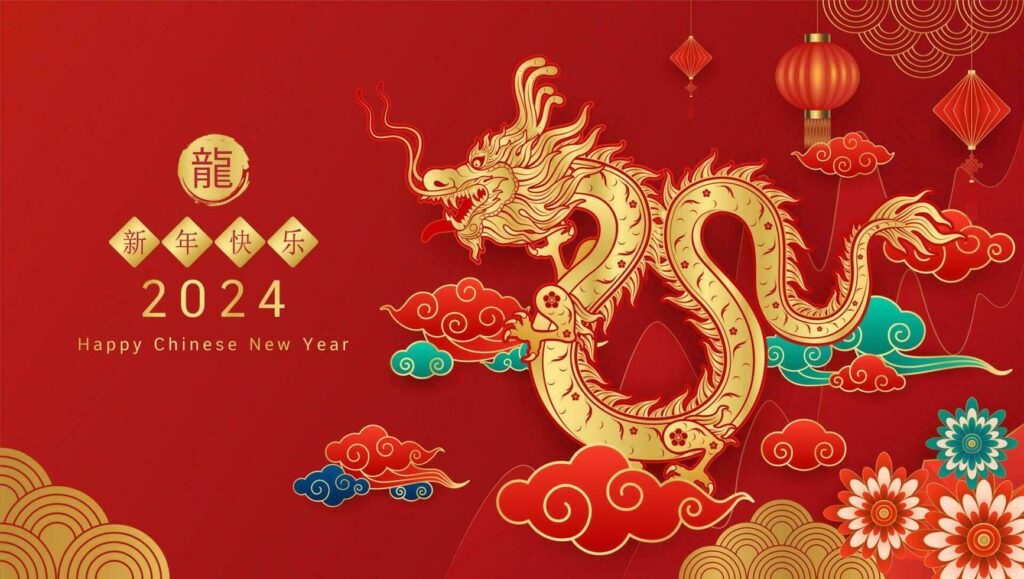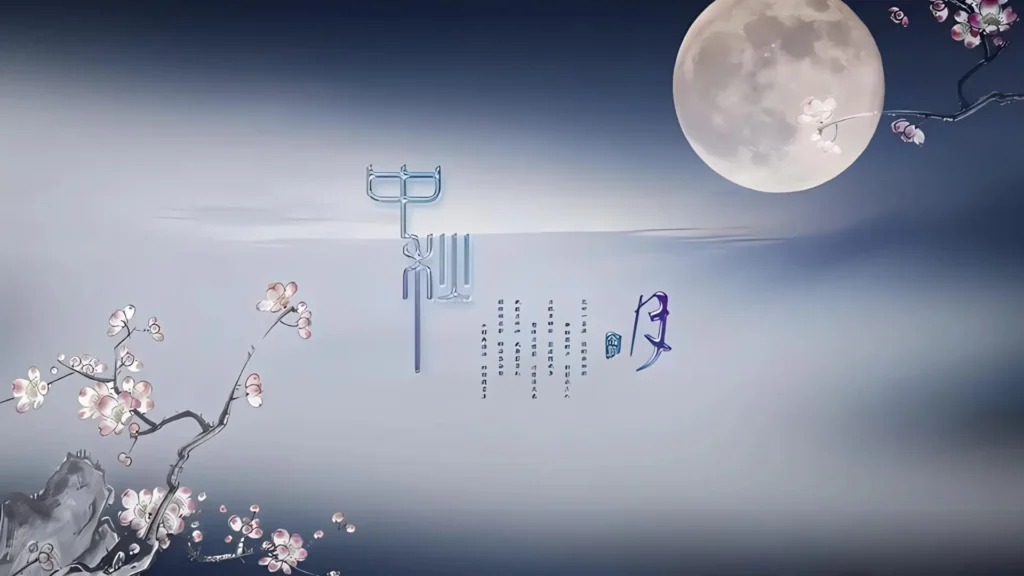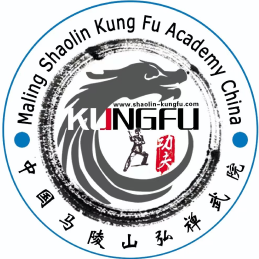Chinese Food & Culture
Food
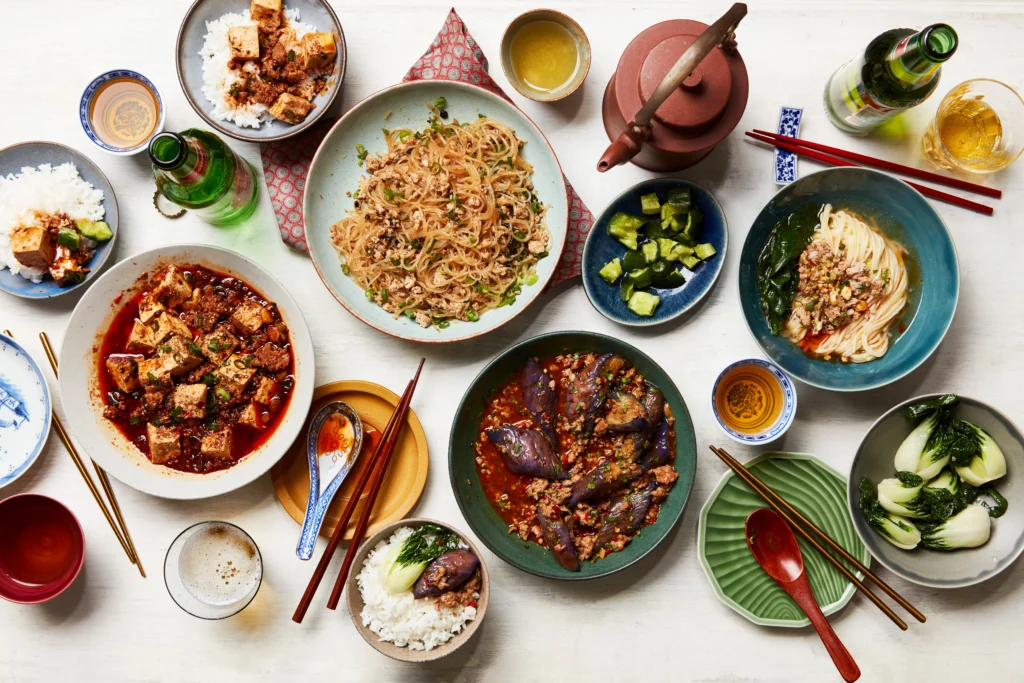
Chinese cuisine is celebrated worldwide for its rich diversity, complex flavors, and cultural significance. However, despite its popularity, there are several common misconceptions that foreigners often have about Chinese food. Don’t believe everything you hear! You may have heard tell of “strange” meat options in Chinese cuisine, however, you’d be hard-pressed to find a meal with beloved furry friends or crawling critters. While some food may be out of your comfort zone (say chicken feet or pig’s ear), in Chinese culinary tradition, these ingredients are valued for their flavor, texture, and nutritional benefits. But don’t worry! It’s unlikely you’d ever encounter these foods on your school dinner table.
For the adventurous soul, you can take a trip to the nearby village Wangzhuang to get a taste of these regional delicacies! There are vast regional differences in cuisine across China, each region boasting its own unique ingredients, cooking techniques, and flavor profiles. These differences in Chinese cuisine are often influenced by factors such as geography, climate, and historical migration patterns. Northern Chinese cuisine tends to be heartier and wheat-based, with dishes like dumplings, noodles, and steamed buns taking center stage. In contrast, Southern Chinese cuisine is characterized by its emphasis on fresh seafood, vegetables, and rice. The flavors of Cantonese cuisine are subtle and delicate, allowing the natural flavors of the ingredients to shine through, while the cuisine of Sichuan province is known for its bold and spicy flavors. There is truly something for every palate!
The impact of culture on Chinese food is profound, shaping not only the ingredients and cooking methods but also the social and symbolic significance of meals. Food plays a central role in Chinese culture, serving as a means of bringing families and communities together. Many traditional Chinese dishes are steeped in symbolism and are served during special occasions and festivals to bring luck, prosperity, and happiness. For example, dumplings are a staple during Chinese New Year celebrations, symbolizing wealth and prosperity due to their resemblance to gold ingots.
Despite the regional differences, there are also many similarities between Western food and Chinese food. Both cuisines prioritize the use of fresh, seasonal ingredients and emphasize the importance of balance and harmony in flavors. In fact, the food in China may be some of the freshest you’ve ever had! Additionally, globalization has led to the fusion of culinary techniques and ingredients from both traditions, resulting in the emergence of dishes like Chinese-American sweet and sour chicken or Western-style burgers with Chinese-inspired toppings. But if you’re really missing the taste of the West, you can always find a burger, chips, or fried chicken nearby. Ultimately, whether you’re enjoying a bowl of hot and sour soup in Beijing or a slice of pepperoni pizza in New York City, food has a universal power to bring people together and celebrate the diversity of culinary traditions around the world.
Eating At The Academy
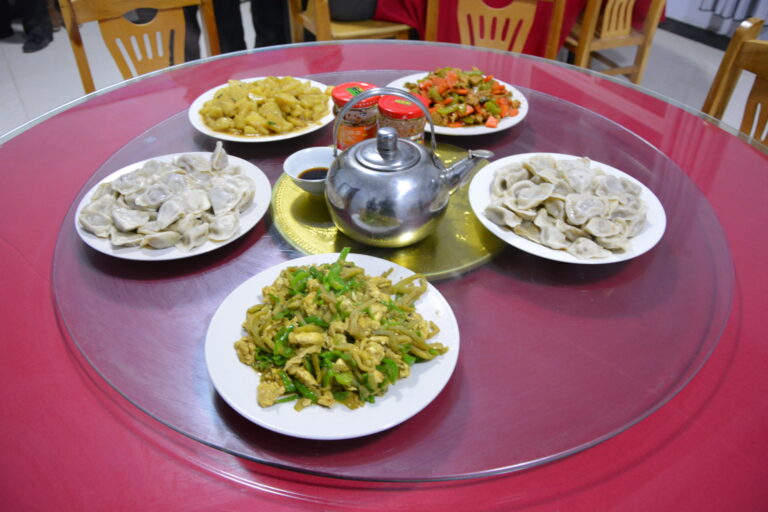
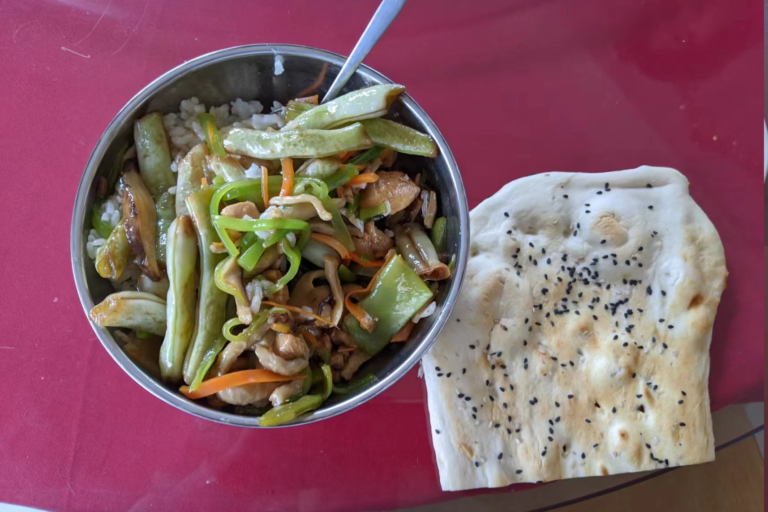
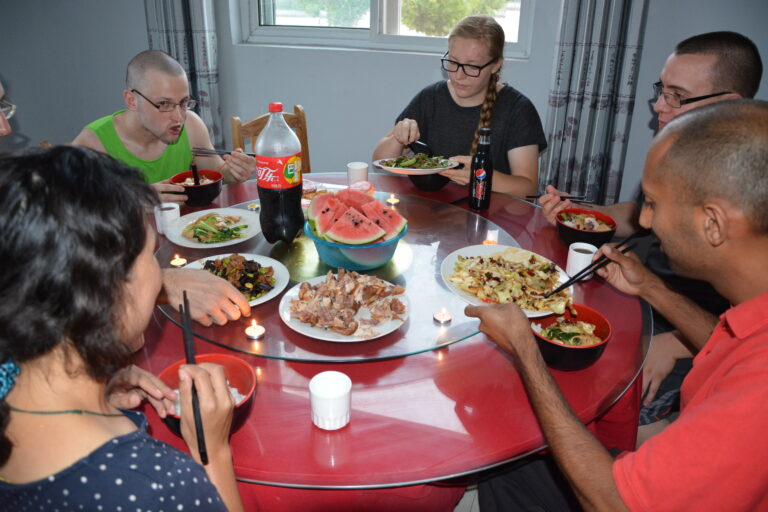
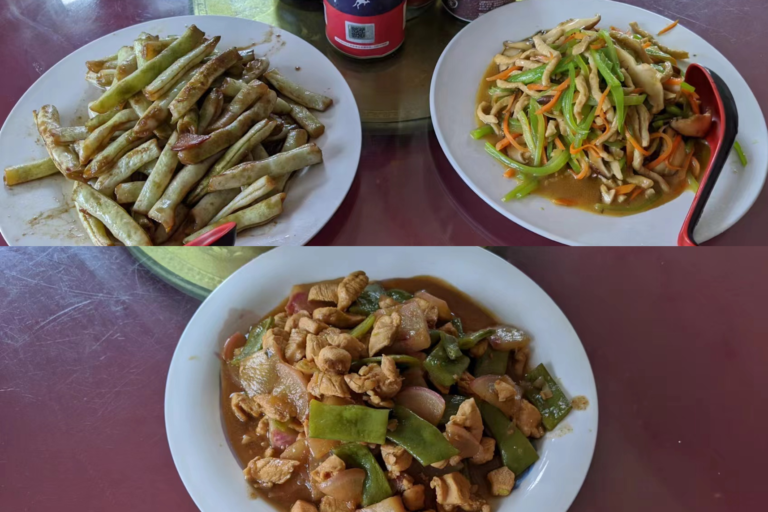
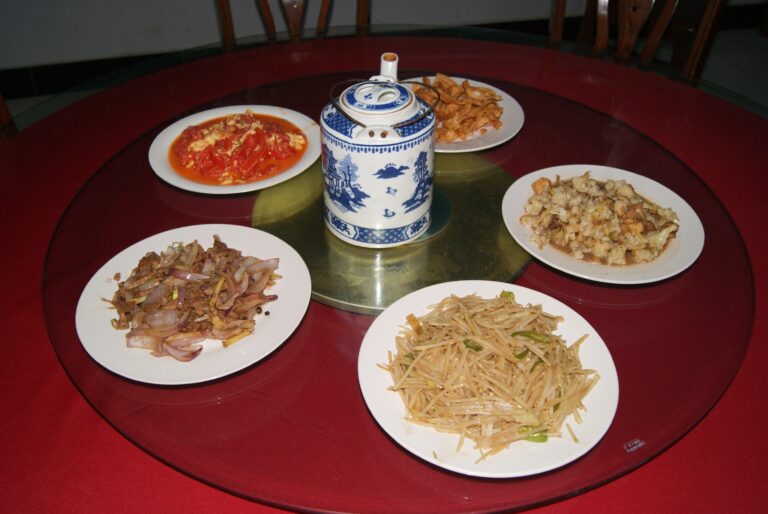
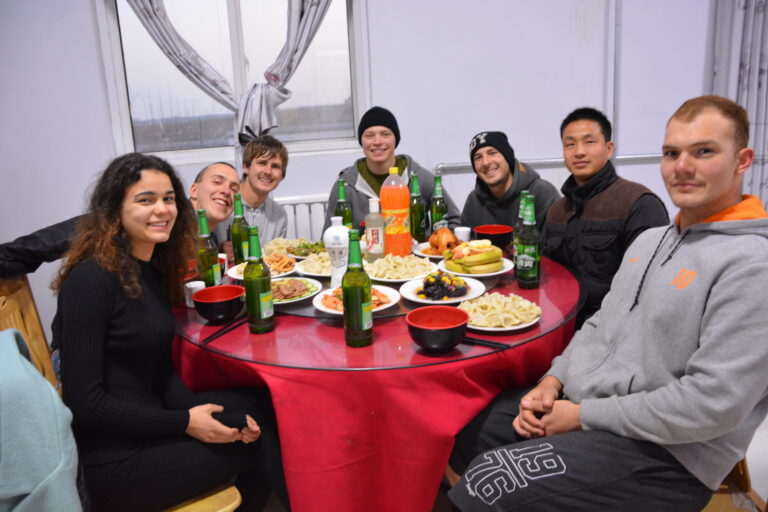
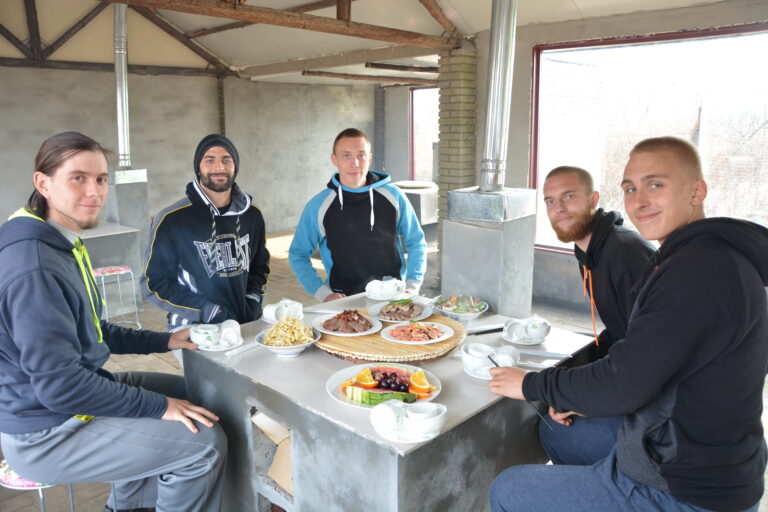
The school caters to all food allergies and food-based religious beliefs. Many of our students have been vegan, vegetarian, lactose intolerant, pork averse, etc., and have no issues with what we serve. Just be sure to notify us ahead of time if you have any specific dietary requirements!
All meals served at the academy are cooked in Chinese fashion. Breakfast typically consists of traditional buns, Chinese oatmeal, and eggs. If you wish, you can supplement this with your own bread spreads (e.g. Nutella or jam), which are available in the village supermarket.
The primary proteins served during lunch and dinner at the school are chicken, eggs, tofu, and occasionally fish. All meals also include lots of fresh vegetables and either rice, steamed buns, or local wheat & corn wraps. We also occasionally serve noodle soup, steamed buns, and dumplings. While outside of school, there are many restaurants in the village where students can enjoy traditional Chinese food and Western fast food. Just be sure to let us know beforehand if you won’t be onsite for a meal so we can prepare portions accordingly.
Culture
Understanding cultural differences is essential when navigating daily life in China, as the cultural landscape is vastly different from that of the West. One noticeable difference is the concept of queuing. In Western countries, queuing is typically orderly and adhered to strictly, with individuals waiting their turn in line. However, in China, particularly in crowded public spaces like train stations or markets, queuing may be less structured, with people jostling for position or forming more chaotic lines. This cultural difference can be jarring for those accustomed to Western norms but is reflective of broader cultural attitudes towards individualism and collectivism.
Another aspect of daily life where cultural differences are apparent revolves around the infamous Chinese toilet. In China, squat toilets are prevalent, especially in rural areas or older buildings, whereas Western-style sit-down toilets are more common in urban centers and modern facilities. For individuals from Western cultures, using squat toilets may require some adjustment and cultural sensitivity.
In Chinese culture, the concept of money is deeply intertwined with social relationships and personal values. In traditional society, the emphasis is placed on frugality, thriftiness, and the responsible management of resources. Generosity and hospitality are highly valued virtues, and individuals may be judged by their willingness (or unwillingness) to share and support others in need.
Conversations about money in China can be nuanced and indirect, with individuals often employing tact and subtlety when discussing financial matters. Face-saving is paramount, and open displays of wealth or extravagance may be viewed as gauche or ostentatious. Instead, modesty and humility are admired, and individuals may downplay their financial success or achievements to avoid appearing boastful or arrogant.
Relationships are vital within the culture, with deep respect and reverence for elders, mentors, and authority figures. The master-student relationship, in particular, holds special significance, embodying the transmission of knowledge, wisdom, and tradition from one generation to the next. Students are expected to show deference and obedience to their masters, while masters are responsible for nurturing and guiding their students with patience and wisdom.
Friendship in Chinese culture is valued for its loyalty, trustworthiness, and mutual support. Friends are regarded as an extension of one’s family, and maintaining harmonious relationships is considered essential for personal well-being and social harmony. Trust and sincerity are fundamental to friendship, and individuals may prioritize loyalty to their friends over personal gain or self-interest.
Respect for the elderly is deeply ingrained in Chinese culture, with elders revered for their wisdom, experience, and contributions to society. Filial piety, or the duty to honor and care for one’s parents and elders, is considered one of the highest virtues in Chinese society. Younger generations are expected to show deference and obedience to their elders, while elders are responsible for imparting moral values, cultural traditions, and familial wisdom to their descendants. This intergenerational bond fosters a sense of continuity and connection, ensuring the preservation of cultural heritage and familial values across generations.
Understanding and appreciating these cultural differences is crucial for fostering mutual respect and effective communication between individuals from different backgrounds. By acknowledging and respecting cultural norms and practices, we can build stronger relationships and avoid misunderstandings or unintended offenses. Furthermore, gaining insight into different cultural perspectives can broaden our horizons and enrich our experiences, fostering empathy and tolerance for diverse ways of life.
Be sure to check out our blog for more information on Chinese culture, Kung Fu, and history!
Festivals
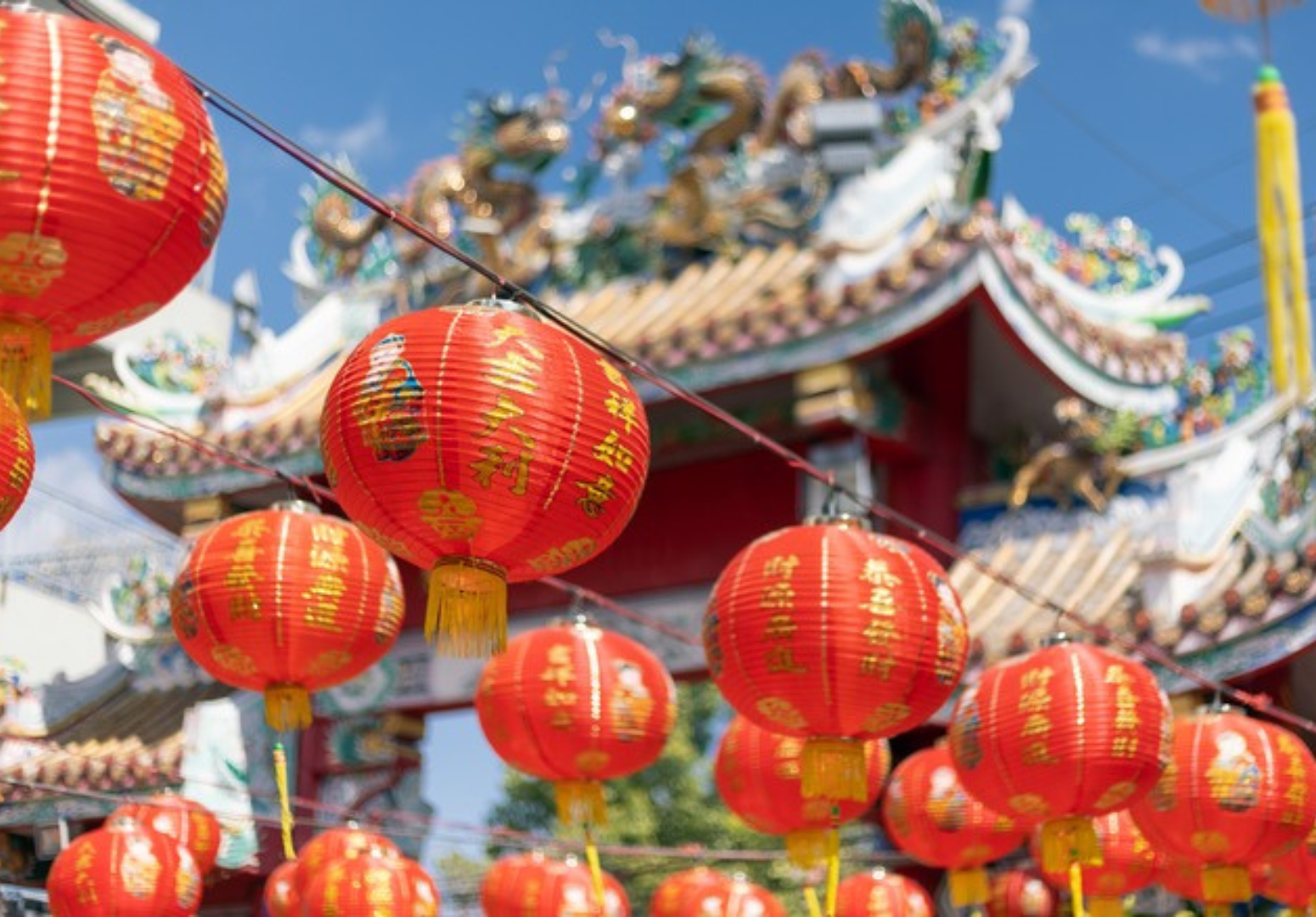
Lunar New Year [Spring Festival]
Lunar New Year, sometimes called Chinese New Year, is an annual 15-day festival that begins with the new moon that occurs between January 21 and February 20. It marks the first day of the Lunar Calendar.
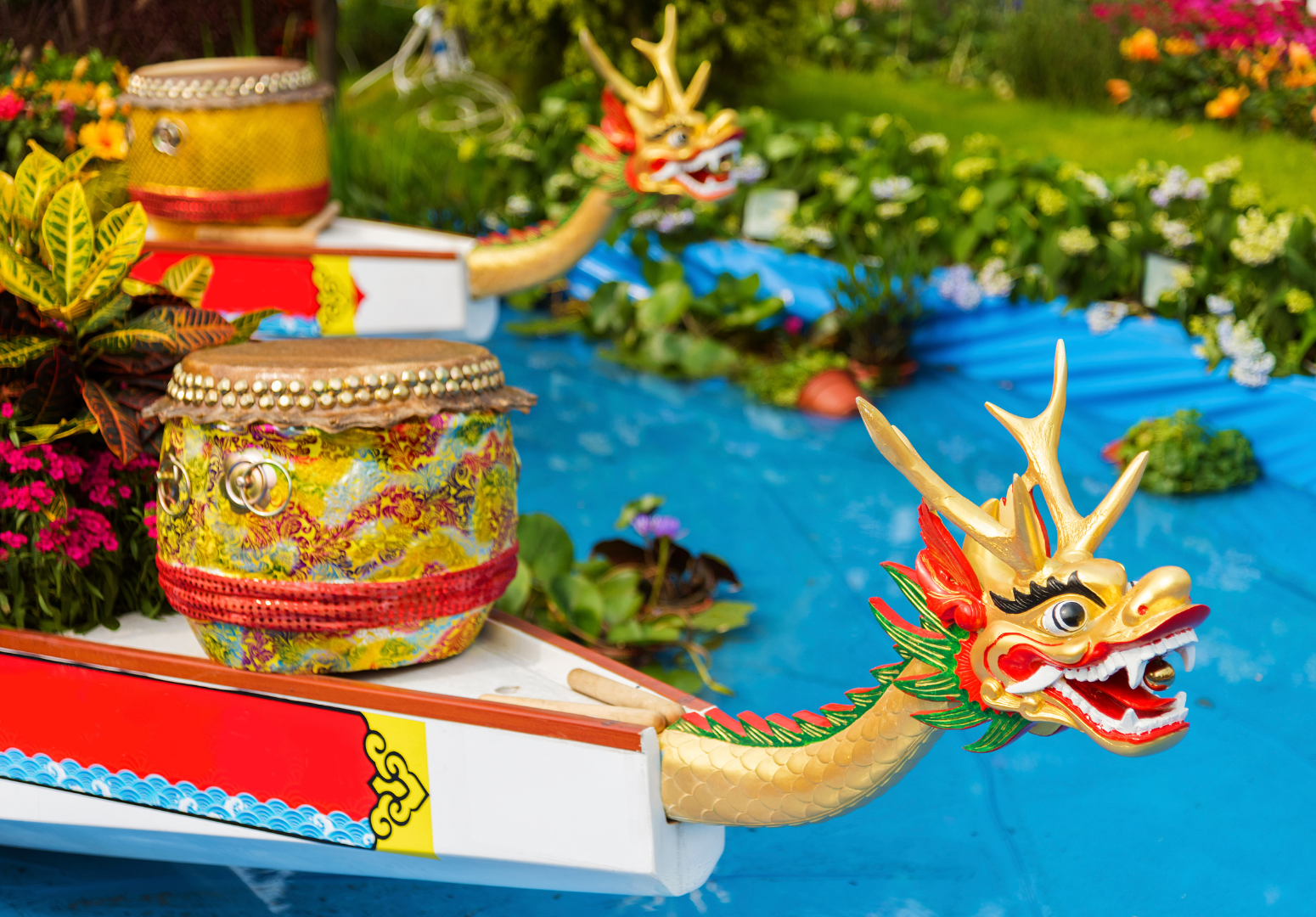
Dragon Boat Festival
A folk festival integrating worship of gods and ancestors, praying for good luck and warding off evil spirits, celebrating, entertainment, and eating. It occurs on the fifth day of the fifth month of the Lunar calendar.
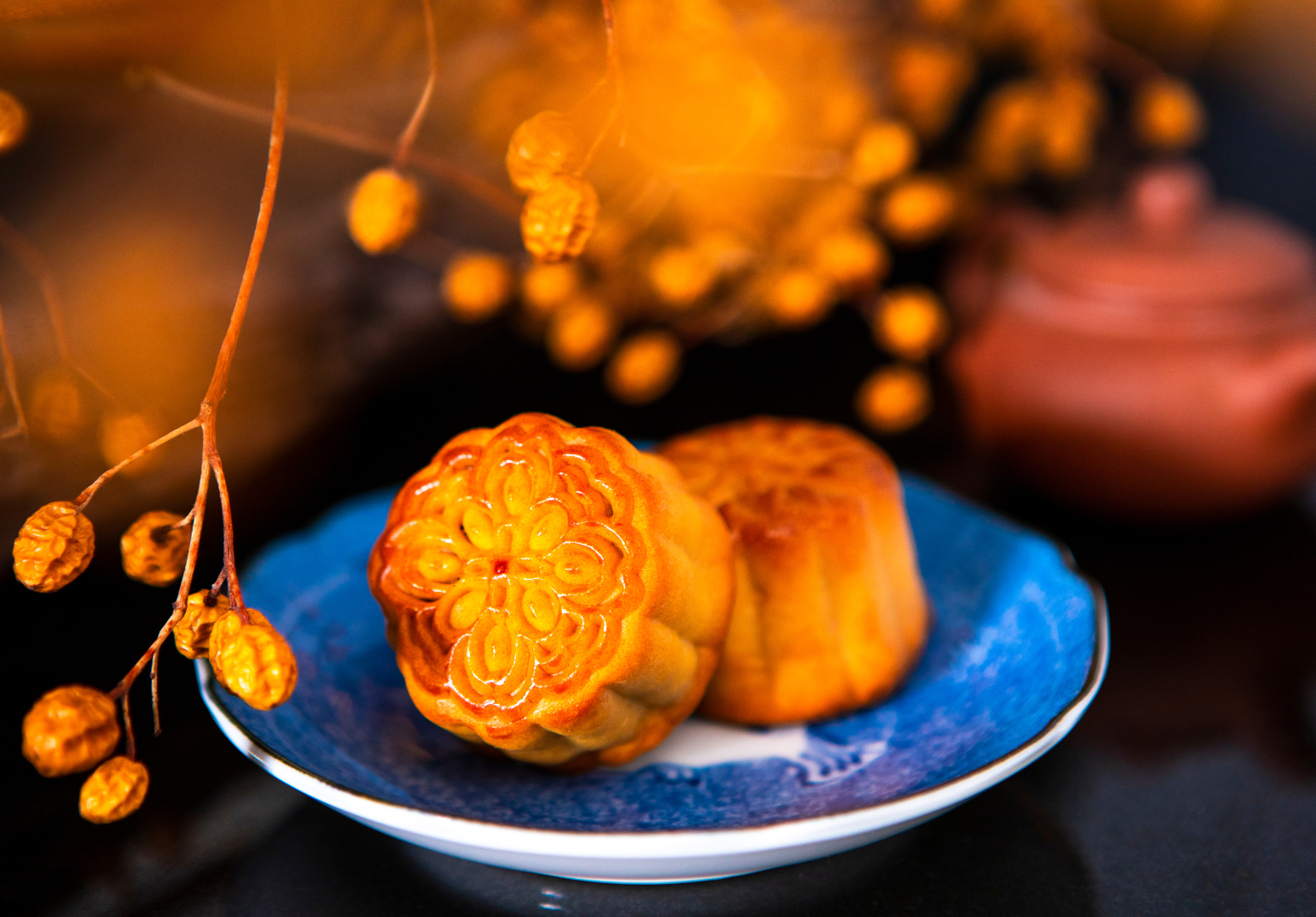
Mid Autumn Festival
The Mid-autumn Festival is a harvest festival that falls on the 15th day of the eighth lunar month. During the festival, lanterns of all size and shapes – which symbolize beacons that light people's path to prosperity and good fortune – are carried and displayed.
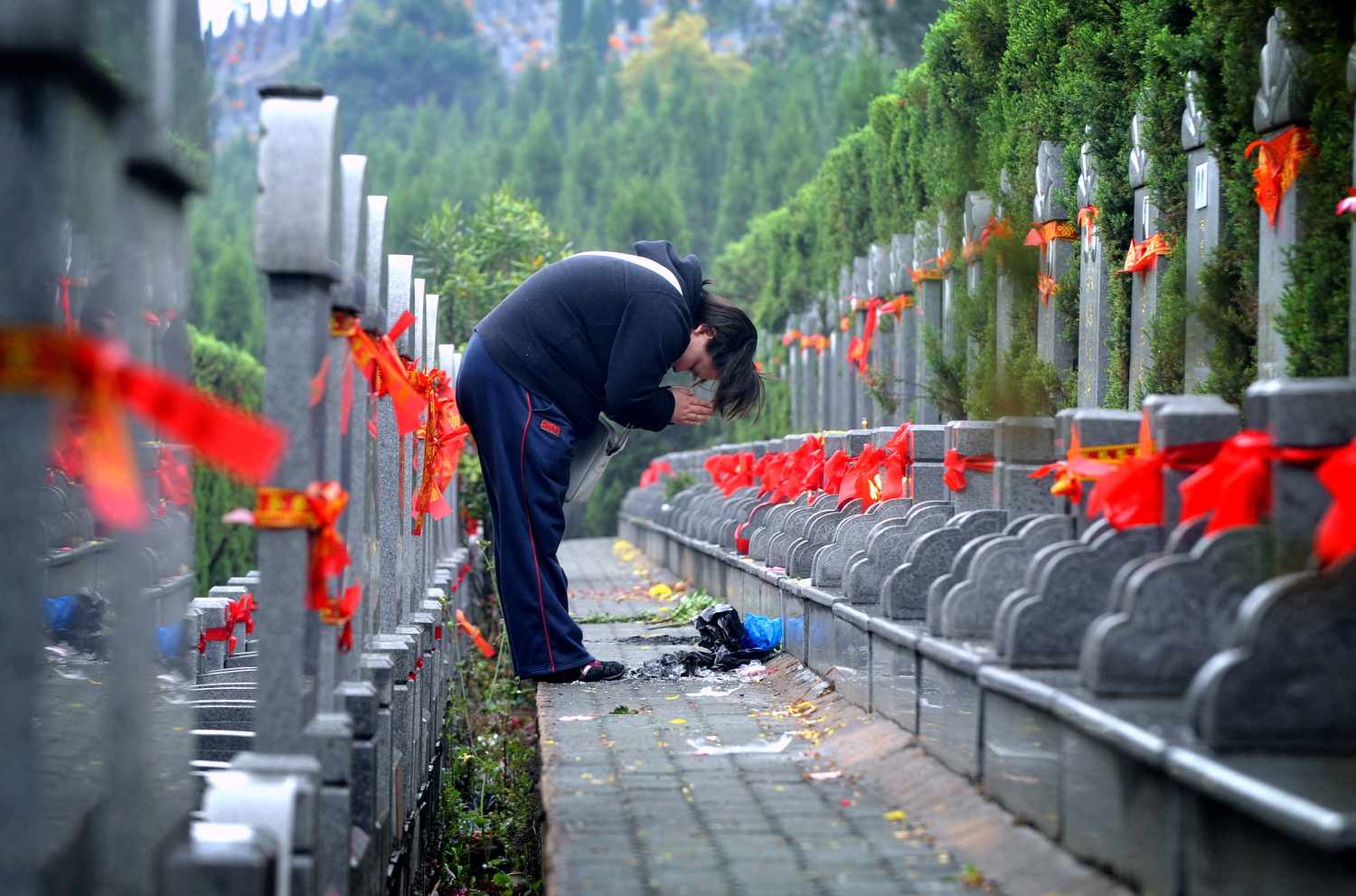
Qingming Festival
The Qingming Festival, also known as Tomb-Sweeping Day in English (sometimes also called Chinese Memorial Day or Ancestors' Day), is a celebration of spring. Families visit the tombs of their ancestors to clean the gravesites and make ritual offerings to their ancestors.
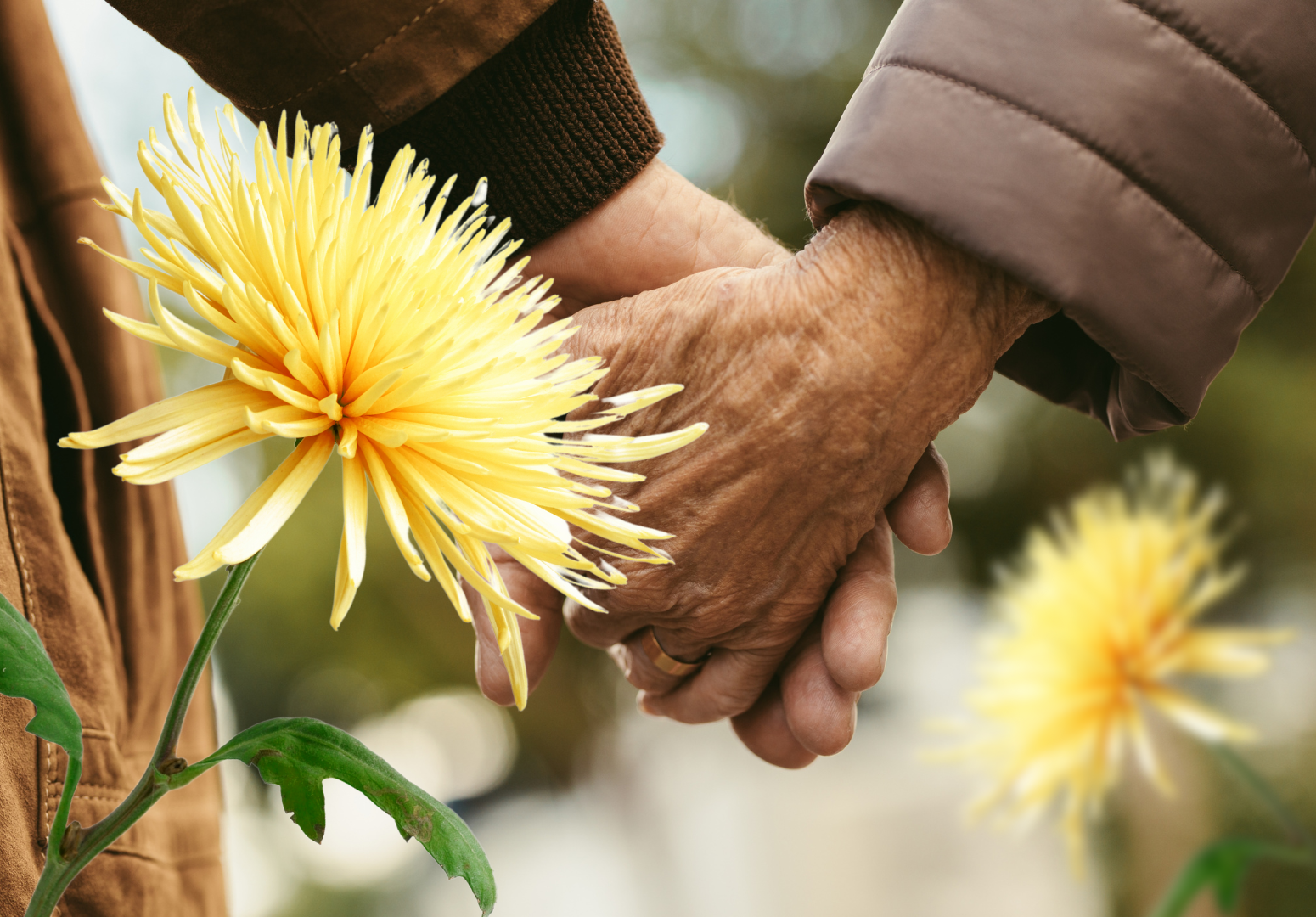
Double Ninth Festival
On this day, elders are specially meant to improve their health by taking part in activities on the day of the festival. It is also a time for family get-togethers. It is an occasion to remember one's ancestors, the sacrifices they made, and the hardships they underwent.

Lantern Festival
The Lantern Festival aims to promote reconciliation, peace, and forgiveness. The holiday marks the first full moon of the new lunar year and the end of the Chinese New Year (see Lunar New Year).
Helpful Articles For Your Move To China
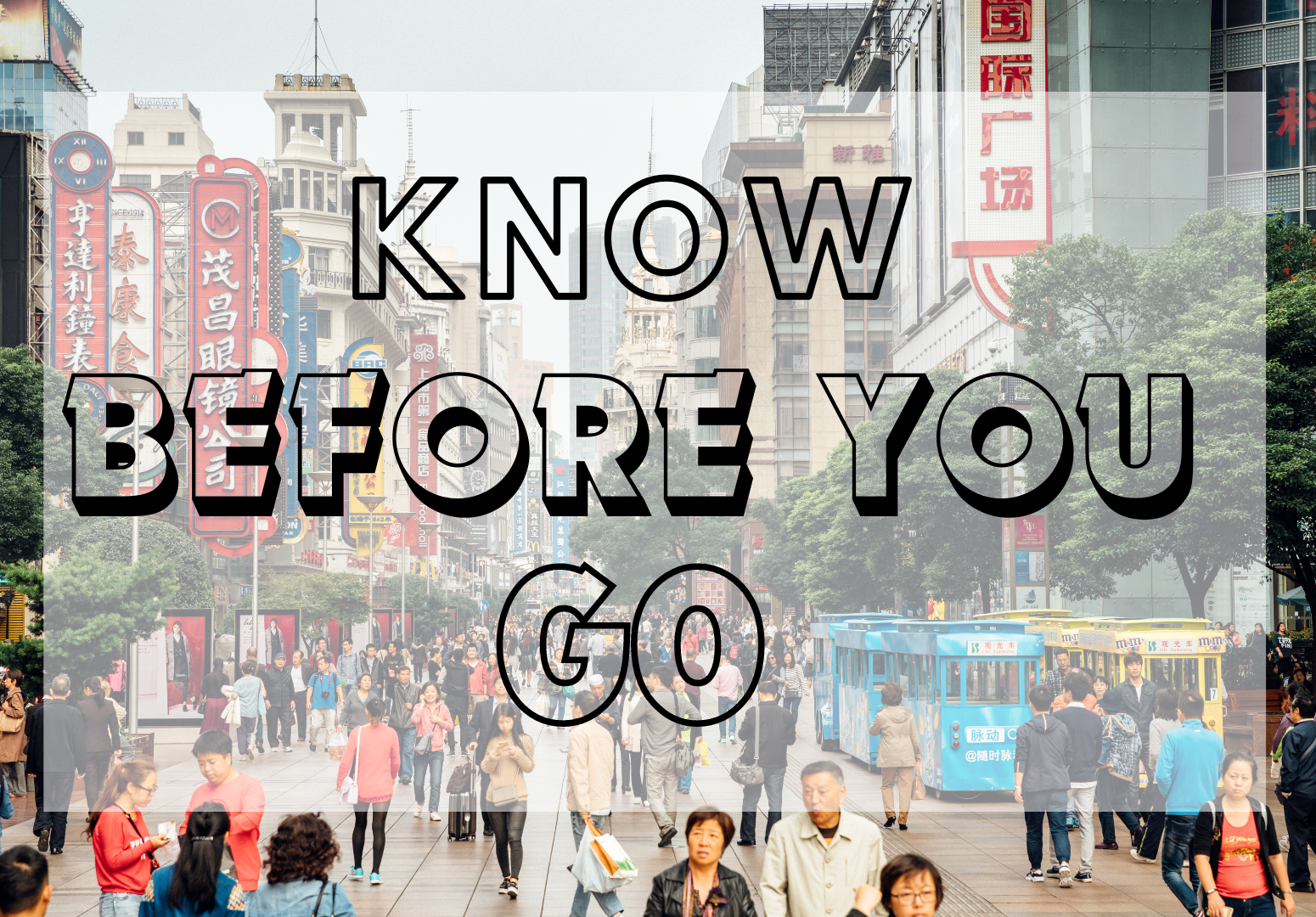
What To Know About China

Basic Chinese Words To Know

Travel Checklist
Chinese Lunar New Year, also known as the Spring Festival, is a time of vibrant celebrations, cherished traditions, and rich cultural heritage. Rooted in ancient customs and steeped in symbolism, this annual event marks the beginning of the lunar calendar in Chinese culture.
The Mid-Autumn Festival (Zhong Qiu Jie 中秋节), also known as the Moon Festival, is a significant traditional Chinese festival. It falls on the 15th day of the eighth lunar month, which usually corresponds to September or early October in the Gregorian calendar. This festival holds great cultural importance and has been celebrated for over 2,000 years.

